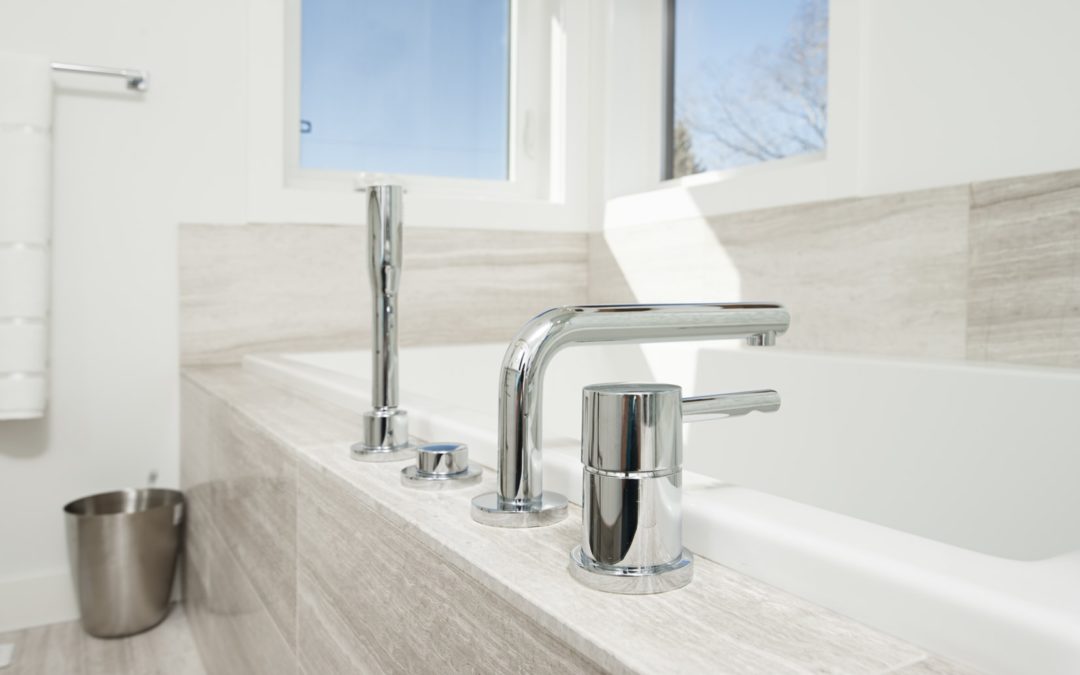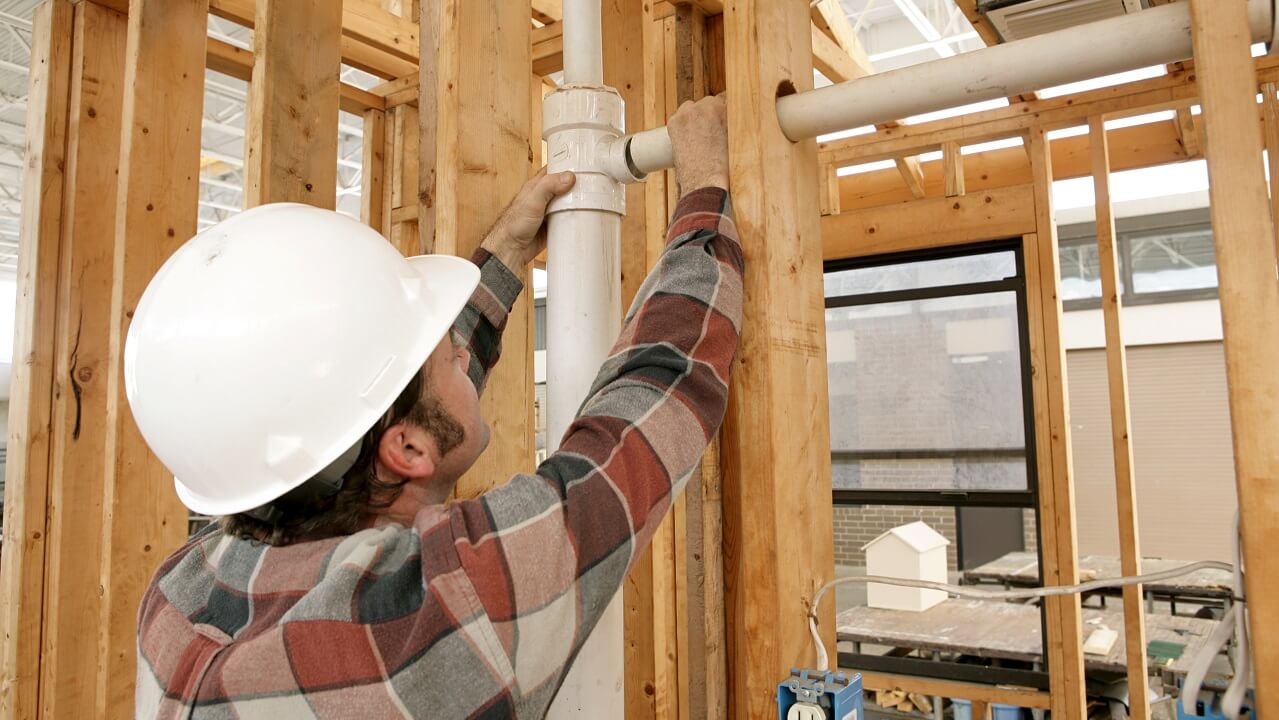The Advantages and disadvantages of Various Sorts Of Pipes Systems
When it comes to pipes, you have actually got alternatives – and every one features its very own collection of advantages and disadvantages. From the sturdiness of copper to the adaptability of PEX, the range of products and systems can be overwhelming. Yet dig deeper, and you’ll locate there’s more to evaluate than simply expense and setup. The appropriate option for your home or business can make all the distinction regarding effectiveness, life-span, and even water pressure. So, what’s the very best suitable for your plumbing needs? Allow’s check out the pros and cons of the leading selections.
Secret Takeaways
- Copper plumbing systems provide toughness and performance but have greater prices and are prone to pinhole leakages.
- PEX pipes systems give flexibility, streamlined installation, and resistance to freezing and deterioration, making them a popular modern selection.
- Galvanized steel plumbing is at risk to rust, has a limited life-span, and calls for routine maintenance, making it much less desirable than more recent materials.
- Cast iron plumbing is highly sturdy and economical long-term, however vulnerable to clogging issues otherwise appropriately preserved.
- Plastic plumbing pipes are functional, environmentally friendly, and easy to mount, however can be at risk to UV damage if not set up properly.
Copper Pipes Equipments
Copper plumbing systems have long been a popular choice for property and commercial structures, providing a variety of advantages that make them a trusted option for your home. Among the essential advantages of copper is its resilience – it’s immune to rust and can withstand high water stress, ensuring your plumbing system lasts for years.
Copper’s thermal conductivity additionally permits it to effectively move warmth, making it a terrific option for hot water shipment. https://nottinghillplumber.co.uk In addition, copper is non-toxic and will not infect your water, offering you assurance concerning the quality of your drinking water.
Nevertheless, copper pipes systems do feature some downsides. The product can be rather expensive, and the installation procedure is more labor-intensive contrasted to other options. Copper is additionally prone to pinhole leakages, which can lead to water damage if left unaddressed.
In addition, the metal preference of copper water may be unfavorable for some homeowners. Inevitably, while copper supplies superb performance, you’ll require to consider the advantages and disadvantages to identify if it’s the right selection for your particular needs.
PEX Pipes Systems
As an option to the a lot more standard copper plumbing, you may wish to contemplate the growing appeal of PEX (cross-linked polyethylene) systems. PEX supplies a number of distinctive advantages that make it an enticing option for modern home construction and restorations.
Among the main benefits of PEX is its remarkable versatility, allowing for easy navigation around barriers and tight areas. This flexibility likewise streamlines the setup process, lowering the moment and effort called for compared to rigid copper pipes.
In addition, PEX systems are much less susceptible to freezing and corrosion, which can be a typical problem with copper. This enhanced longevity can translate to reduced maintenance expenses and a longer life-span for your pipes framework.
The flexibility of PEX also enables smooth integration with a selection of fittings and components, making it a versatile alternative for a wide variety of pipes applications. Thinking about the benefits of PEX flexibility and installation simplicity, it’s no wonder this cutting-edge plumbing solution is obtaining traction in the sector.
Galvanized Steel Pipes
Galvanized steel plumbing may appear like a durable alternative, however it’s not without its difficulties.
You’ll need to evaluate its rust resistance, limited lifespan, and continuous maintenance needs.
While it was as soon as a preferred choice, contemporary products like copper and PEX have actually surpassed galvanized steel in both efficiency and long life.
Deterioration Resistance Difficulty
One typical obstacle with galvanized steel plumbing is its vulnerability to deterioration, which can bring about leaks, reduced water flow, and even system failure with time. The zinc covering on galvanized steel pipelines is created to shield the underlying steel from rust, yet this safety layer can wear off throughout the years, exposing the steel to the destructive impacts of water and minerals.
To resolve this concern, proper rust prevention measures are necessary. This might involve selecting alternative plumbing materials, such as copper or PEX, which are more immune to rust. Additionally, regular upkeep and evaluation of the pipes system can help identify and attend to any kind of indications of deterioration before they come to be significant troubles.
When it concerns material selection, you’ll wish to carefully take into consideration the certain problems of your plumbing setting, including water high quality, temperature level, and any possible chemical exposures. By taking a proactive strategy to deterioration avoidance, you can aid assure the longevity and integrity of your galvanized steel pipes system.
Life expectancy Limitations
While galvanized steel pipelines offer a relatively cost-efficient plumbing remedy, their life expectancy is inherently limited as a result of the gradual damage of the safety zinc layer over time.
Usually, you can anticipate galvanized steel pipelines to last in between 40 to 50 years, although this can differ significantly depending upon the regional water top quality and environmental variables. Over time, the zinc finishing erodes, leaving the underlying steel at risk to deterioration and eventual failing. This postures installation challenges, as you may need to change the entire plumbing system faster than with various other products.
In addition, the ecological effect of galvanized steel pipes can not be disregarded. The production and eventual disposal of these pipes can contribute to the exhaustion of natural deposits and the generation of waste.
As you consider your pipes options, it’s crucial to weigh the life-span limitations and ecological factors to consider against the initial cost-effectiveness of galvanized steel pipelines.
Upkeep Requirements
Preserving galvanized steel plumbing requires diligence, as the system demands regular assessments and aggressive procedures to address potential problems.
Pipeline evaluations are vital to recognize any indicators of rust, which can result in leakages and water damages if left unattended. You’ll need to on a regular basis inspect the pipelines for staining, range build-up, or minimized water flow, and address any kind of problems promptly.
Leak discovery is likewise crucial, as galvanized steel pipes are at risk to pinhole leakages that can be tough to spot. Frequently looking for wet areas, low water pressure, or unexpectedly high water bills can aid you capture leakages early before they create considerable damage.
In addition, you might require to occasionally flush the system to get rid of sediment build-up, which can restrict water circulation and contribute to rust.
With appropriate upkeep, your galvanized steel plumbing can last for many years, but disregarding it can result in pricey repairs or perhaps a full system substitute. Remain watchful, and deal with any problems as quickly as they emerge.
Cast Iron Pipes
Cast iron plumbing systems have their benefits and drawbacks.
You’ll find they’re extremely durable and can last for years, yet they’re at risk to deterioration over time.
While cast iron is resistant to obstructions, bigger blockages can still cause concerns otherwise resolved promptly.
Longevity and Long life
Among one of the most significant advantages of actors iron pipes is its outstanding resilience and long life, commonly long-term more than 100 years with proper maintenance. The thick, rigid material is extremely resistant to damage, holding up against the consistent flow of water, waste, and environmental factors like corrosion. This extensive life-span can conserve property owners from regular and expensive pipes substitutes, making it a wise long-lasting investment.
While the installation procedure for actors iron pipes may be more labor-intensive contrasted to contemporary options, the financial investment pays off over time.
Additionally, the environmental influence of actors iron is normally reduced, as it’s a recyclable product that does not launch damaging toxins. Its durability indicates fewer substitutes are required, lowering waste and source consumption.
Deterioration Resistance
Another crucial benefit of cast iron pipes is its outstanding resistance to deterioration. You can expect your cast iron pipes to stand up to the devastations of oxidation and chain reaction for decades, far surpassing the life-span of lots of modern plumbing materials. This corrosion avoidance is because of the intrinsic residential properties of the cast iron itself, which forms a protective oxide layer externally when revealed to dampness and oxygen.
When it pertains to material selection, cast iron is simply unequalled for resisting rust. Unlike copper and galvanized steel, which can rust and deteriorate over time, cast iron continues to be incredibly durable and lasting. This makes it an ideal choice for applications where the plumbing system will certainly be subjected to rough ecological problems or aggressive water chemistry.
Additionally, the exceptional deterioration resistance of actors iron assists to preserve the architectural integrity of the pipes, reducing the danger of leakages, obstructions, and other plumbing concerns down the line. This can translate to substantial expense savings and satisfaction for property owners and building owners over the long-term.
Potential Clogging Issues
While cast iron pipes are exceptionally resistant to deterioration, they might be susceptible to obstructing concerns otherwise appropriately kept. In time, mineral deposits, particles, and even tree roots can accumulate within the pipes, limiting water flow and leading to obstructions.
To prevent blocking, it’s vital to routinely inspect and cleanse your cast iron pipes system. Normal flushing and the use of chemical drainpipe cleaners can help eliminate build-up and maintain your pipes clear. In addition, mounting mesh screens or traps in your drains can catch bigger particles before it goes into the system.
If you do encounter a blockage, you might require to make use of a plumbing’s snake or other specific tools to remove the blockage. Routine upkeep and punctual focus to any type of drain concerns can help you prevent the inconvenience and possible water damages associated with a stopped up actors iron plumbing system.
Plastic Pipes Pipeline
Plastic plumbing pipes have actually ended up being significantly popular in recent times, providing homeowners a versatile and economical option for their plumbing requires. These light-weight and resilient pipes aren’t only simple to install, yet they likewise boast impressive sustainability advantages. Compared to standard steel pipes, plastic pipes require much less energy and resources to create, making them a more environmentally-friendly choice.
One of the primary advantages of plastic pipes is their installment convenience. They’re flexible and can be quickly curved to navigate tight rooms, reducing the requirement for complex fittings and connections. This simplifies the total installation procedure, often causing faster and extra economical projects. Additionally, plastic pipelines are resistant to rust and range build-up, which can extend their life expectancy and lessen upkeep demands.
While plastic pipes use many benefits, it’s essential to take into consideration potential drawbacks, such as their sensitivity to UV damages and the dangers of inappropriate installment. Property owners need to collaborate with experienced plumbing technicians to ensure their plastic pipes system is mounted properly and kept properly for peak performance and longevity.
Stress Assisted Plumbing
For property owners looking for an extra reliable pipes remedy, pressure-assisted pipes systems provide a compelling alternative. These specialized systems utilize the power of pressed air to improve water circulation and stress, delivering a more consistent and dependable efficiency compared to conventional gravity-fed plumbing.
One of the main performance benefits of pressure-assisted systems is their ability to keep consistent water pressure, even in multi-story homes or locations with low tide pressure. The pressed air enhances the water circulation, ensuring a strong, reliable stream from every component. This can be particularly beneficial for property owners that fight with inadequate water pressure from their existing pipes.
However, the installment of pressure-assisted systems usually presents difficulties. The systems need added parts, such as a pressure container and compressor, which can enhance the general cost and complexity of the installment procedure.
Furthermore, the ongoing upkeep and energy consumption of the compressor can include in the long-lasting operating budget for house owners.
Gravity-Fed Pipes Solutions
In contrast to pressure-assisted systems, gravity-fed pipes relies upon the all-natural pressure of gravity to move water via the pipes, providing a simpler and frequently more affordable solution for many homeowners.
With gravity-fed systems, water moves downward through the pipes without the need for extra pumps or pressurized components. This style simplicity can make installation simpler and extra uncomplicated contrasted to pressure-assisted systems, which commonly need even more customized equipment and experience.
However, gravity-fed systems aren’t without their very own challenges. Preserving correct incline and drainage is essential to sustain the needed gravity circulation, which can be more difficult in homes with intricate formats or unequal floorings.
Furthermore, the reliance on gravity suggests that water pressure might be lower in upper levels of a home, potentially limiting the performance of components and home appliances.
Cautious planning and interest to detail throughout the installment procedure are essential to overcome these potential setup challenges and guarantee the long-term trustworthy procedure of a gravity-fed plumbing system.
Tankless Water Heaters
Tankless hot water heater offer an energy-efficient option to conventional tank-style versions, heating water on-demand rather than maintaining a consistent supply in a storage tank. These small units make use of much less energy, as they just warm water when it’s required, instead of maintaining a full container warmed around the clock.
While the setup prices are generally greater than a conventional container heating system, the lasting energy financial savings can offset the first investment. Among the biggest benefits of tankless water heaters is their power effectiveness. They can decrease your power costs by up to 50% compared to a traditional container version.
And also, they occupy a lot less area, making them a great choice for homes with restricted area. Nonetheless, the ahead of time prices can be a deterrent, as tankless heating units often set you back 2-3 times more than a criterion tank unit.
Often Asked Inquiries
Just how Do I Pick the Right Plumbing Technician for My Home?
When choosing the right plumbing technician for your home, consider their certifications and get multiple pipes quotes.

Look for an accredited, skilled plumber that can supply referrals and a thorough price quote.
Ask about their experience in the specific kind of pipes work you need.
Do not just go with the most inexpensive choice – concentrate on top quality and integrity to guarantee your pipes project is done right the very first time.
What Are the Upkeep Needs for Different Plumbing Systems?
Your plumbing system’s upkeep requires depend upon the type you have.
As an example, normal pipe examinations are necessary for copper and galvanized steel pipes to check for rust.
PVC and plastic pipelines usually require less maintenance, yet you’ll still wish to look for leakages.
Over time, you may need system upgrades as components wear out.
Stay on top of maintenance to prevent expensive repair work down the line.
Exactly How Can I Prolong the Lifespan of My Plumbing System?
To prolong the life-span of your plumbing system, take safety nets like routine evaluations.
See to it to check for any type of leakages, clogs, or rust and address them quickly.
You ought to likewise protect your pipes to secure them from freezing temperatures.
Furthermore, use the ideal cleansing products and avoid putting anything down the tubes that can trigger clogs.
What Are the Usual Plumbing Problems and Exactly How to Deal with Them?
You might come across usual plumbing problems like dripping faucets or clogged drains pipes.
To repair a leaking tap, beginning by turning off the water system and disassembling the tap. Replace worn washing machines or seals, then rebuild and turn the water back on.
For a clogged up drainpipe, attempt making use of a bettor or a drain snake to clear the obstruction. If the trouble persists, you might need to call a specialist plumbing for aid.
Just How Can I Reduce My Water Use and Reduced Energy Expenses?
To reduce your water use and lower utility expenses, beginning by executing some basic water-saving tips.
Set up low-flow components like showerheads and taps, repair any type of leakages without delay, and consider upgrading to more efficient appliances.


You can also attempt changing your hot water heater temperature, using the dishwasher and cleaning device only when full, and being mindful of your water usage behaviors.
These utility bill strategies can make a huge distinction in your monthly costs without compromising your way of living.
Final thought
When selecting a plumbing system, you’ll require to weigh the benefits and drawbacks.
Copper offers longevity however costs much more, while PEX is flexible and cost effective.
Galvanized steel may wear away, and cast iron requires upkeep.
Plastic pipes are budget-friendly yet less long lasting.
Pressure-assisted systems improve water flow but are more intricate, and gravity-fed systems are simpler yet offer reduced pressure.
Tankless water heaters save power yet have higher ahead of time costs.
Determine your priorities to select the best alternative for your needs.